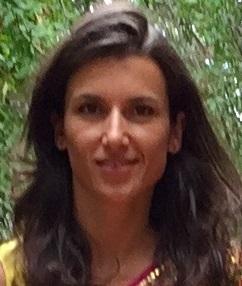In East Africa, a fund backing renewable energy projects promotes gender development and helps local communities.
Hellen Sange is cutting and stitching at a wooden table, concentrating deeply, in her house in Kapworos in Eastern Uganda. She is preparing a dress for her neighbour: “With the money I make, I will be able to pay for the solar panel that will help me work when there’s no light,” she says.
The 53-year old expects to save around 1 million shillings (about €240) in the next five months. This is a boost to her family's income — and to her confidence and the respect she gets from her community. "The new skill,” she says, “adds to my prestige as a working woman.”
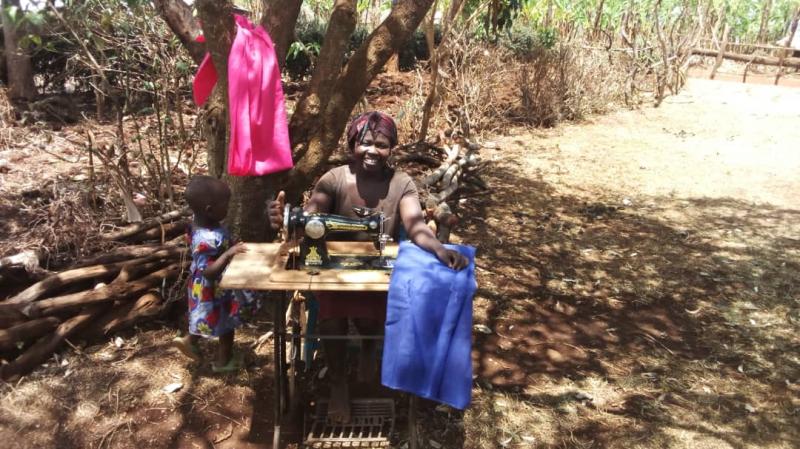
Hellen Sange
Sange is one of 55 women who completed a nine-month tailoring training backed by Frontier Energy, a leading investor in the East African renewable energy market. At other Frontier Energy projects, women have been trained as midwives and cooks. The idea is that communities — and women in particular — should benefit from Frontier’s investment, as well as the investors who back the energy projects.
The €60 million Frontier fund includes a €12 million investment from the EIB-advised Global Energy Efficiency and Renewable Energy Fund (GEEREF). The successor fund, Frontier Energy II, closed at the end of 2018 with $227 million in investment, with GEEREF still playing an anchor role by committing $20.9 million in March 2017. Frontier Energy II has secured 45% of private capital, which is a very positive sign.
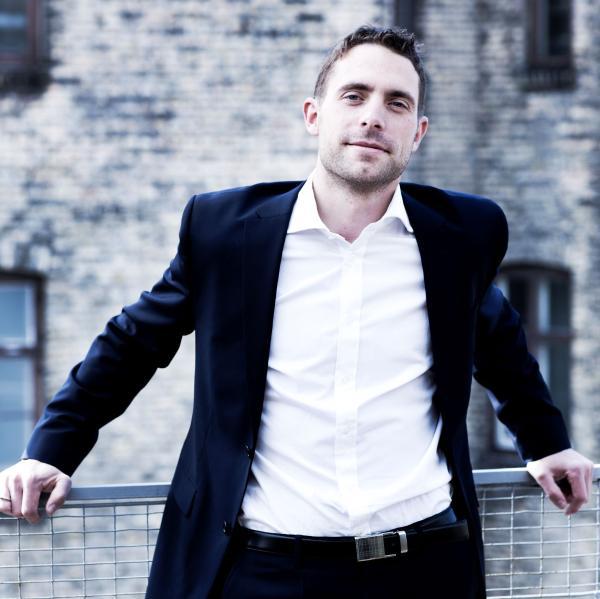
Daniel Schultz
“Project development has been at the heart of our activities since the very start,” says Daniel Schultz, the investment director and co-founder of Frontier. “We wanted to get meaningful projects off the ground in those markets that were not ready for other investors to put money into. We were lucky we had a heavyweight investor, GEEREF, on our side since the beginning.”
A challenging start
The energy sector suffers from a lack of long-term investment, mainly because many investors are reluctant to take on the risks associated with early-stage project development. This lack of investment is particularly evident in Sub-Saharan Africa, where more than 50 % of rural households rely on open kerosene lamps. In 2007, four young Danish men saw this lack of financing as an opportunity.
After four intense years of studying the market, developing a business plan and raising funds, they founded DI Frontier Energy & Carbon Fund in 2011. “At the beginning it was very tough. GEEREF came in as an important anchor investor at a critical time and it is difficult to see how we would have gotten off the ground without GEEREF’s early commitment,” Schultz says.
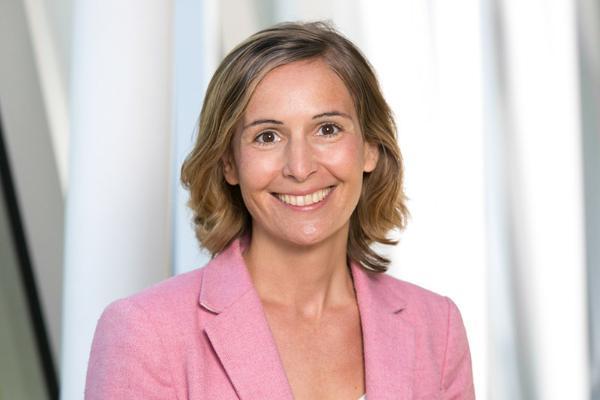
Aglaé Touchard Le Drian
The EIB-backed GEEREF is a fund of funds and was one of the first investors in Frontier. “Our structure allows catalysing private investors thanks to a priority return mechanism,” says Aglaé Touchard-Le Drian, senior investment manager for GEEREF. “The equity is used for the development of the renewable energy and energy efficiency projects that indirectly also benefits local communities.”
“GEEREF is about the planet, profit and, most of all, the people,” she adds. “We also integrate the gender angle throughout the investment process, because it’s the right thing to do and the intelligent thing to do to create long-term value.”
Frontier is now fully committed to six investments producing 139 megawatts of power in small hydro, solar and geothermal energy in East Africa. One of these is the 5 MW Siti hydro plant in Bilbo District, Eastern Uganda. In full swing for the past year and half, the Siti plant uses the hydropower potential of the Siti river as it drops down a series of rapids in the village of Chesowari in the Mount Elgon region.

Lubilia hydro plant, Kawembe, Uganda
Immediately downstream, another small hydro plant with a capacity of 16.5 MW will be operational in four months. To the west, a 5.4 MW-plant captures the energy of the falling water of the river Lubilia, as it drops 264 metres in a series of rapids in and around the village of Kawembe in the foothills of the Rwenzori mountains.
Gender development is the right thing
Since 2015, each renewable energy project backed by Frontier has a “community development plan.” Gender action is part of this, and Frontier has women working on its plans. Arundhati Inamdar Willetts, a Kenyan woman, joined the Frontier team in 2014, because of her extensive experience in environmental audits and social impact assessment.
Keziah Kateregga started as a community liaison officer at Frontier in 2015 and two years later, at the age of 29, was promoted to social sustainability manager. She now supervises six men, all older than her.
It’s crucial to understand the family as a whole. Some men still think they can own their spouses like they own a saucepan
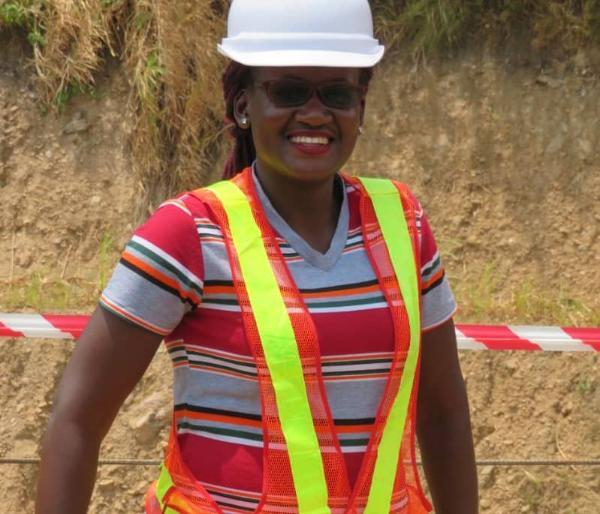
Keziah Kateregga
Financial inclusion for gender development
The majority of GEEREF funds need to secure land locally to develop projects and Frontier is no exception. Land acquisition is challenging for fund managers and project developers, but it is also an opportunity to improve local conditions. Kateregga makes this possible: “It’s crucial to understand the family as a whole. Some men still think they can own their spouses like they own a saucepan.”
As a rule, the male head of household owns the land. Thanks to Keziah and her team’s efforts, now women can add their signature to the land acquisition contract and they are informed of any disclosure in the process. “Women have come a long way, at home and outside,” says Kateregga.
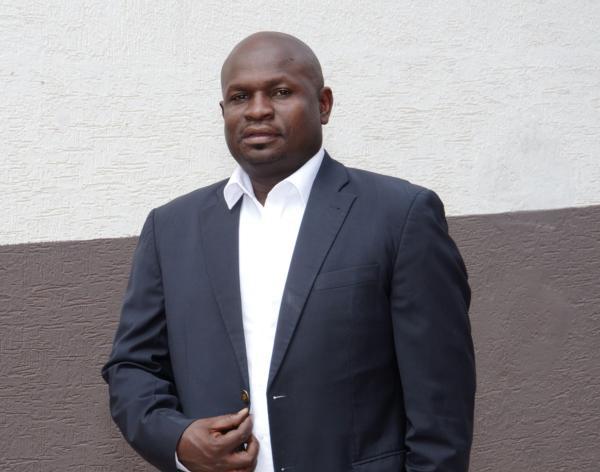
George Owuor
However, women are still largely responsible for providing water to their communities and households, which is a tough job. “You may have water, but access is a mirage,” says George Owuor, Frontier’s environmental, social and governance manager, who works closely with Inamdar Willetts. Every day in Lubilia Kawembe, women used to walk a couple of kilometres under the burning sun to fetch water.
Not any longer. An initiative backed by Frontier built a freshwater supply, so that women could save time and focus on other activities, including training. “Once you empower a woman, the children will have a role model, an easier life, benefits beyond their immediate families,” says Owuor, who hired a civil engineer, Judith Uwamahoro, as environment, health and safety supervisor on the Rwaza small hydro power plant in northern Rwanda. Judith beats the odds every morning as she goes to work in a male-dominated sector.
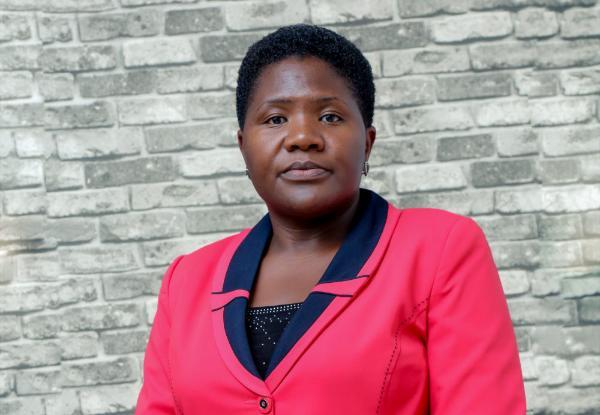
Annicent Busingye
Out of the comfort zone
Frontier also has other women in operations and maintenance of hydro power plants, which is usually thought of as a man’s role in traditional communities. Annicent Busingye is the operations and maintenance director for the Frontier Energy portfolio in Uganda. “My mission is to empower, protect and invest in the women and girls in my country through mentoring and role modelling,” she says.
“My job gets me out of my comfort zone every day and I love it,” she adds, “We have hired female operators and will continue to give girls and women an opportunity to work in the operations and maintenance of Frontier small hydro plants.”
Meanwhile, Hellen Sange has finished stitching the new dress and it looks gorgeous.
